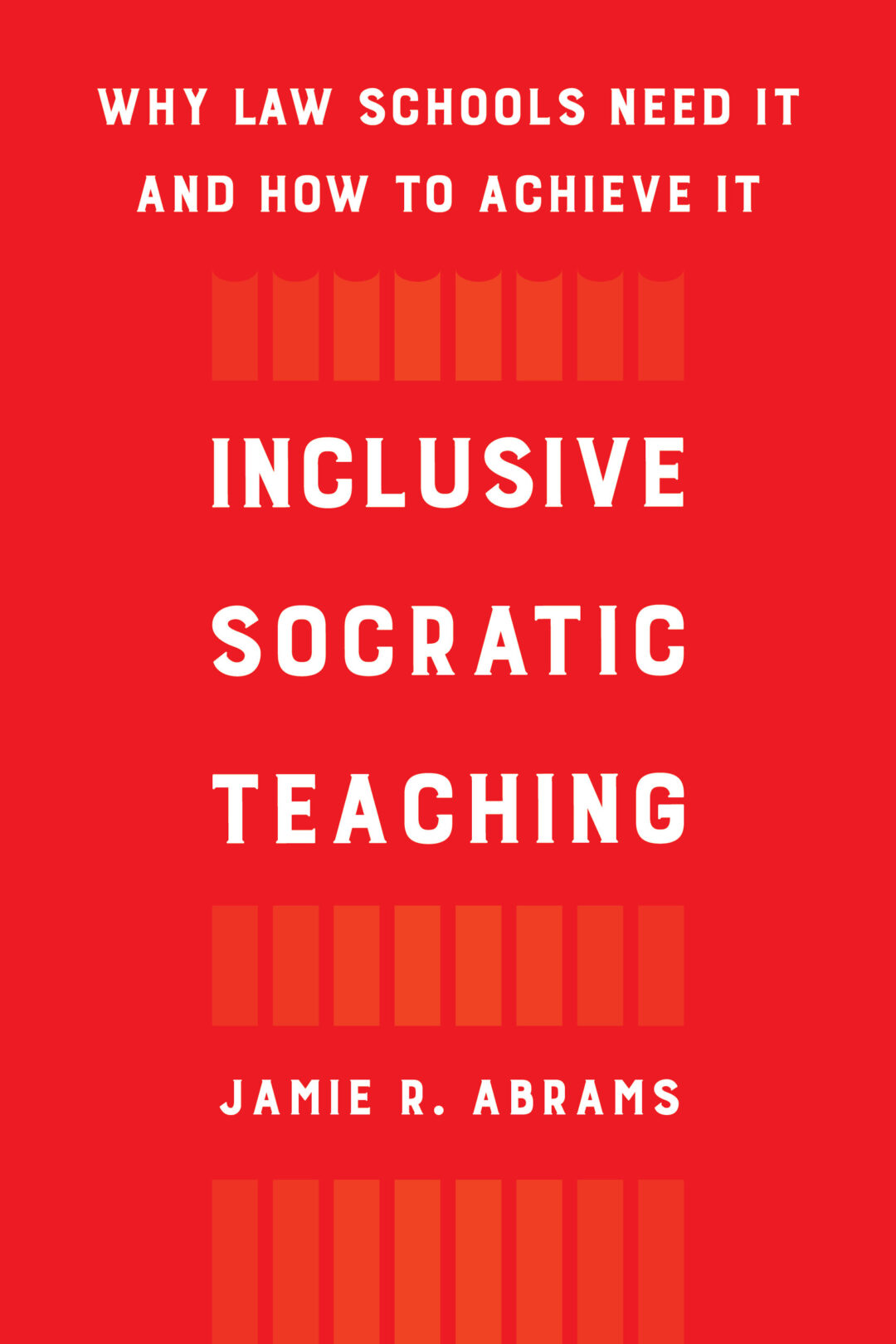By: Jamie R. Abrams, Professor of Law & Director of Legal Rhetoric Program,
American University, Washington College of Law
As scholars and teachers working in professional identity formation, blog readers may be interested to check out my recent book, titled Inclusive Socratic Teaching: Why Law Schools Need It and How to Achieve It, published by the University of California Press. The book issues a call to action squarely centered in the Socratic classrooms that still dominate so much of legal education’s curricular core. The book’s premise is that existing legal education reforms, including ABA Standard 303(b) governing professional identity formation, are happening around the architectural and structural core of Socratic classrooms.
The book traces enduring scholarly critiques over the past fifty years of Socratic teaching’s professor-centered and power-centered approaches. It layers onto these critical perspectives the alarming wellness concerns facing modern law students and lawyers that scholars, such as the Holloran Center’s Co-Director Jerry Organ, have been documenting for years. With this body of literature outlined, the book ponders why we continue to innovate in legal education around the dominant Socratic classrooms. It notes how these traditional classrooms are often in tension with professional identity formation to the extent they put students in competition to be racked and stacked against each other, skewing students’ self-efficacy and creating a narrow band of skills and values rewarded in the classroom.
Notably, the book does not abandon the Socratic method, though, for reasons of pragmatism, economics, and institutional will. Rather, it seeks to build shared pedagogical values that catalyze these classrooms to align with other institutional reforms. The book therein proposes a set of concrete pedagogical values that can govern Socratic classrooms: student-centered, skills-centered, client-centered, and community-centered teaching techniques.
It then provides a roadmap of how to implement these shared pedagogical values. Simple techniques, like shifting from “what are the facts of the case?” and “what was the holding?” to an exploration of who hired a lawyer, why they hired a lawyer, and the skills and values deployed by that lawyer can transform the Socratic classroom to be more skills, student, client, and community focused. The book sketches out techniques, using existing student-teacher ratios and casebooks, to position students as professionals navigating a string of cases on behalf of a host of diverse clients in a range of communities. While Socratic classrooms might not be the primary site for cultivating professional identity formation, these pedagogical techniques sensitize students to professional skills and values in ways that align with deeper dives into professional identity formation happening in specialized classes, professional responsibility classes, experiential courses, simulations courses, and clinics. I warmly invite this community’s ongoing dialogue with these ideas. I hope this book offers a springboard into holistic institutional discussions about the pedagogical values that shape our institutions and the arc of student development from first year to graduation.
Please feel free to reach out to me at jamieabrams@wcl.american.edu if you have any questions or comments.

Jamie R. Abrams is Professor of Law and Director of the Legal Rhetoric Program at American University Washington College of Law. She has published scholarly articles about legal education pedagogy and won numerous awards for pedagogy innovations.
